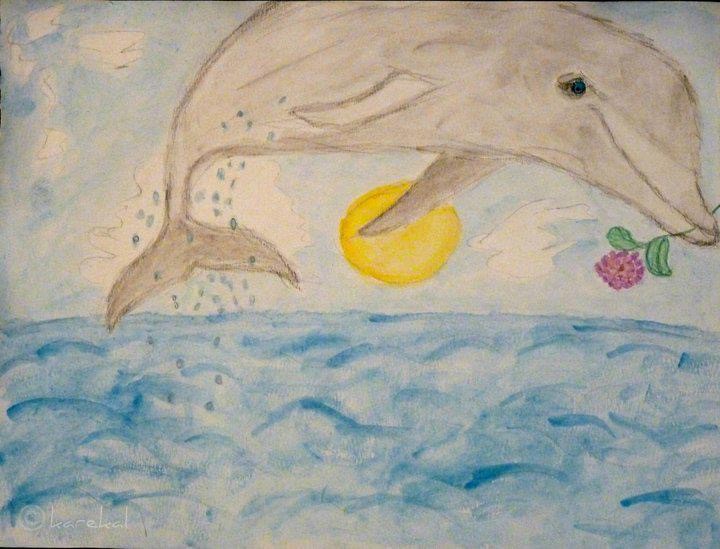For the first time, researchers have found microplastics in dolphin breath, raising concerns over the amount of microplastics the animals are drawing when they come up for air.
The team collected samples of air released by five bottlenose dolphins in Sarasota Bay, Florida and six dolphins in Barataria Bay, Louisiana in May and June of 2023. Researchers took extra precautions before collecting exhalation samples from the dolphin blowholes to clean any ocean water from the blowhole area to avoid contamination.
They found suspected microplastics in all exhalation samples and a total of 54 unique particles across all of the samples. The scientists published their findings in the journal PLOS ONE.
“We know that microplastics are floating around in the air, so we suspected that we would find microplastics in breath samples,” the authors said, as reported by AZoCleantech. “We are concerned by what we are seeing because dolphins have a large lung capacity and take really deep breaths, so we are worried about what these plastics could be doing to their lungs.”
According to the study, the most common microplastic was polyethylene terephthalate (PET), which appeared in 53% of samples. Polyester was the second most commonly detected microplastic, showing up in 24% of samples. They found polyamide in 12% of samples as well as both polybutylene terephthalate (PBT) and poly(methyl methacrylate) (PMMA) in 6% of the samples.
“Microplastic inhalation in humans is a budding field, but there have been few studies in wildlife,” said Leslie Hart, co-author of the study and associate professor of public health at College of Charleston in Charleston, South Carolina, as reported by The Guardian. “The fact that dolphins have a much larger lung capacity and are taking deep breaths may mean they are exposed to higher doses of microplastics than humans.”
Earlier this year, a separate study revealed that microplastics could be accumulating in food webs around the Galápagos National Park of Ecuador, which raised concerns over how the accumulated microplastics could impact local wildlife, including endangered Galápagos penguins.
Freshwater bodies are also impacted by microplastics, with a 2023 study revealing microplastic contamination in all aquatic species found in river mouths that flow into the Atlantic Ocean and the Mediterranean Sea. Mussels and oysters were particularly impacted by microplastic contamination, that study found.
The team behind the microplastics in dolphin breath study are now concerned over how the accumulation of inhaled microplastics could affect the animals’ lungs, as lab studies for rodents have previously linked inflammation and oxidative stress from microplastic exposure to pulmonary fibrosis, which would make lung function for dolphins when diving more challenging.
“Dolphins rely on lung compression and collapse during diving, the capacity of which could be reduced by fibrosis. Additionally, the depth at which lungs compress and collapse determines gas exchange, which would be limited by fibrosis as well,” the authors wrote in the study.
The researchers wrote that more research is necessary to determine if microplastic exposure through inhalation could worsen the health risks of microplastics.
This article by Paige Bennett was first published by EcoWatch on 17 October 2024. Lead Image: A newborn bottlenose dolphin and mother at the Dolphin Academy, Seaquarium, Curaçao, Netherlands Antilles. Wild Horizons / Universal Images Group via Getty Images.
What you can do
Help to save wildlife by donating as little as $1 – It only takes a minute.







Leave a Reply